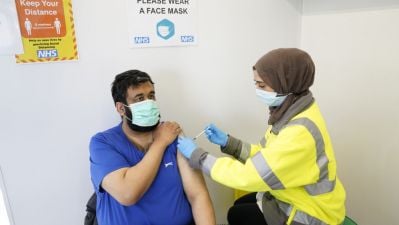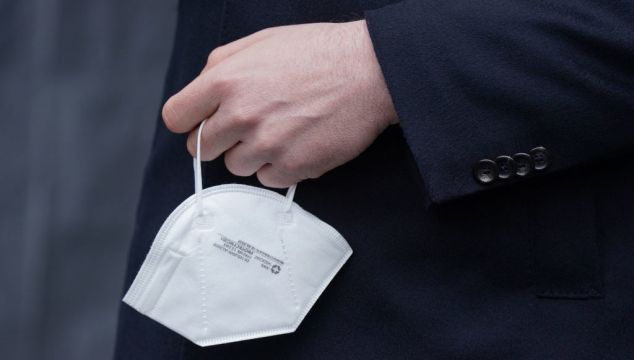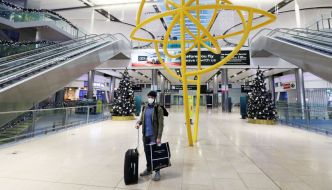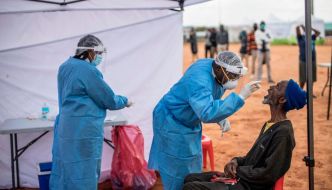Concern about a new variant of Covid-19 has forced health officials and governments around the world to act quickly, appearing to have learnt lessons from previous variants.
Coming at a particularly vulnerable time, especially in Europe, where many countries are reporting record daily case numbers and overwhelmed health services, there are fears this new variant could make an already dire situation even worse.
Here's everything you need to know about the latest variant of concern...
Has it a name?
The World Health Organization has assigned the new Covid variant the Greek letter Omicron.
Omicron, which was first detected in South Africa, has been designated as "of concern," the fifth variant to be given the designation.
Dr @mvankerkhove gives an update on #COVID19 virus variant B.1.1.529, during the #AskWHO session on 25 November 2021 ⬇️ pic.twitter.com/ZpflfEYzW9
Advertisement— World Health Organization (WHO) (@WHO) November 25, 2021
Where has the variant been detected?
The variant has been reported in southern parts of Africa, including South Africa and Botswana, but also in Hong Kong.
A bit closer to home, Belgium detected Europe's first confirmed case of the variant on Friday.
No case of the new variant has been detected in Ireland yet.
How is this variant different?
The new variant is said to have a "constellation" of new mutations, according to Tulio de Oliveira, from the Network for Genomic Surveillance in South Africa.
The "very high number of mutations is a concern for predicted immune evasion and transmissibility", Mr de Oliveira said.
Meanwhile, the chief medical adviser to the UK's Health Security Agency (UKHSA), Dr Susan Hopkins, said the new variant has approximately 30 mutations, adding: "If we look at those mutations, there’s mutations that increase infectivity, mutations that evade the immune response both from vaccines and from natural immunity, mutations that cause increased transmissibility."
Are health experts concerned?
Yes, but it's more so to do with the level of unknowns.
Many variants of the virus have emerged since the onset of the pandemic, some showing significant mutations like this new one. Many of these strains die out, while others continue to spread and may become dominant, as Delta did.
The issue for scientists and health experts is they don't know what path this variant will take.
Despite the concerns, the WHO seems to be steering away from panic, warning against travel restrictions for the moment: "At this point, implementing travel measures is being cautioned against," spokesperson Christian Lindmeier told a UN briefing.
Will vaccines still work?
Again, it's not yet known what kind of impact the new variant will have on the effectiveness of vaccines.
With past variants, studies have found that jabs have held up well, but we won't know about this variant's impact until more research is done.
However, Dr Hopkins said the fact the virus is resurging among South Africa's immune population is "worrying", adding more Covid vaccines may be needed in the future in order to adapt to the virus as it mutates, similar to the flu jab which changes each year.
Important to move quickly on this, coordination across EU is important to be effective. @dfatirl is consulting with @roinnslainte @CMOIreland & @EU_Commission to make decisions on international travel. Expect confirmation of decision later today. https://t.co/E4iajgk3nS
— Simon Coveney (@simoncoveney) November 26, 2021
How are other countries responding?
The UK was among the first to react to the news of the new variant, announcing on Thursday night that South Africa, Botswana, Lesotho, Eswatini, Zimbabwe and Namibia would be added to its red list for international travel. Commercial flights to the UK from those countries has been cancelled until Sunday, while passengers entering the UK from the six countries after that point will be required to quarantine in a government-appointed hotel.
Following the UK's swift action, European Commission president Ursula von der Leyen on Friday morning said a proposal will be made for the EU to "activate the emergency brake to stop air travel from the southern African region".
Meanwhile in Israel, where a number of cases of the variant have been detected, a travel ban covering most of Africa has also been imposed, alongside Russia which also included Hong Kong in their travel curbs.
The United States will restrict travel from South Africa – where the new mutation was discovered – and neighbouring countries effective Monday, a senior Biden administration official said.
Canada also said it was closing its borders to those countries.
Top US infectious disease official Anthony Fauci said there was no indication that the variant was in the United States. It was unclear whether it was resistant to current vaccines, he told CNN.
How is Ireland responding?
Irish residents returning home from the area in southern Africa where a new Covid variant has been identified will have to undergo home quarantine and PCR testing.
It is one of a number of measures being introduced following concerns about transmission levels of the Omicron strain.
Ireland currently has no direct flights from any of the countries affected.

The Government said the State is to align with the EU recommendation to apply the “emergency brake” and to discourage travel to or from Botswana, Eswatini, Lesotho, Mozambique, Namibia, South Africa and Zimbabwe.
The Department of Justice is updating visa requirements for those countries and the Department of Foreign Affairs has changed its travel advisory to “avoid non-essential travel” to these nations.
Meanwhile, the Government is to reintroduce the legislation for the mandatory hotel quarantine system (MHQ) with a view to re-establishing it in the coming weeks.
Minister for Health Stephen Donnelly said he was "deeply concerned" about the new variant and the impact it could have here at a time when the health service is already struggling.







